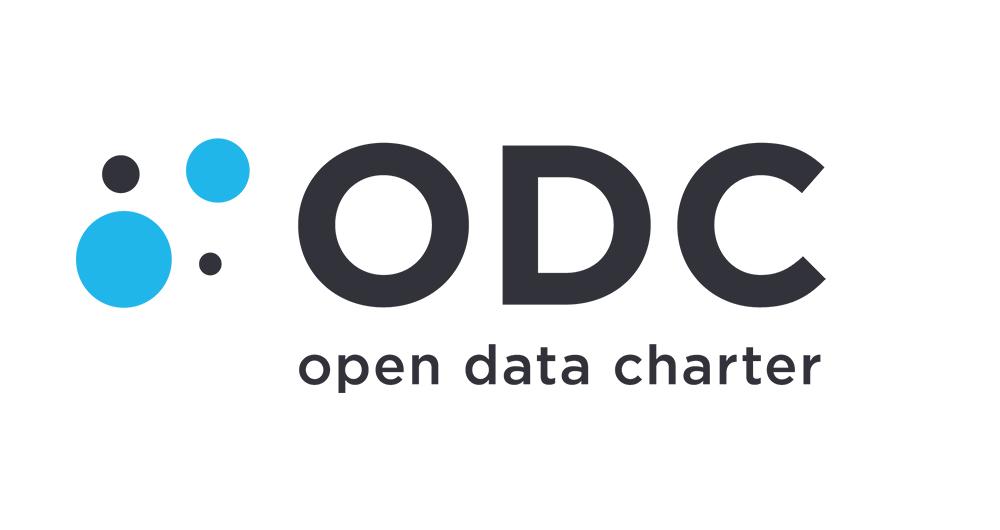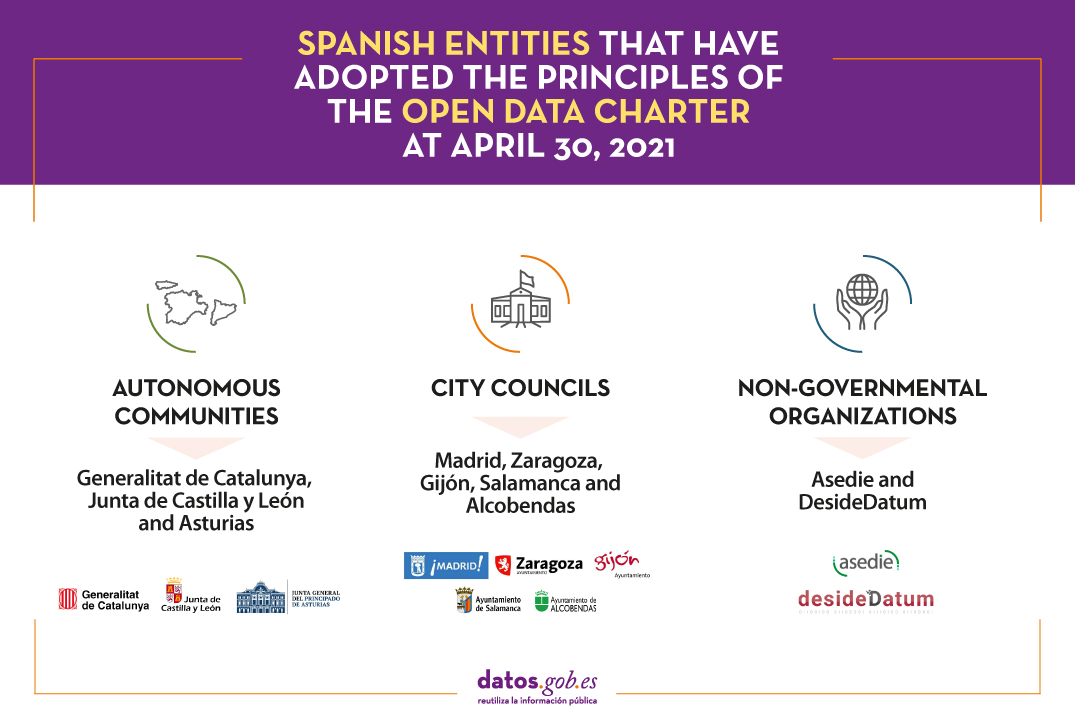
Collaboration and the search for common good practices is essential for the development of a homogeneous and interoperable open data ecosystem. In this sense, the Open Data Charter (ODC) brings together more than 150 governments and organizations with the aim of promoting the opening and reuse of government data based on common criteria to respond to social, economic and environmental challenges. Between the entities adhered, we found some of our country, as we will see in this article.
What does the Open Data Charter do?
The Open Data Charter promotes policies, common practices and resources that allow governments and civil organizations to collect, share and use public datato respond effectively and responsibly to the fight against corruption, climate action or pay equity. Their work can be summarized in two facets: articulating global norms and helping governments translate them into concrete reforms adapted to their context.
In 2015, the ODC developed the International Open Data Charter with 6 principles representing a set of standards agreed worldwide for the publication of data. These principles are:
- Open by default. Governments must open their data on a regular basis, being necessary to justify the reasons why certain data are kept closed, such as security or data protection reasons.
- Timely and Comprehensive. The data must be published quickly and completely, and, whenever possible, in its original form and without modifications.
- Accessible and Usable. They must be machine readable, easy to find, and free, under an open license.
- Comparable and Interoperable. Common standards should be used.
- To improve Governance and Citizen Participation. Open data facilitates transparency and accountability.
- For Inclusive Development and Innovation. They also help drive inclusive economic development through the creation of services and products based on them.
On its website, the ODC offers a resource series to assist in the application of these principles, as well as guides and reports that reflect the benefits of open data in all sectors.
Spain in the Open Data Charter
Our country has different organizations and entities that have signed the International Open Data Charter, and therefore undertake to incorporate these principles into their open data policies.

City councils
At the local level, there are 5 attached city councils. The City Council of Madrid was the pioneer in 2015. Not only was it the first city in our country to adhere to the Charter, but also the first in Europe. Their commitment was reflected in an audit of all their information and the elaboration of a publication calendar, in addition to the approval of a Transparency Ordinance which includes the principles of the ODC.
They followed Zaragoza in 2016, Gijón and Salamanca in 2017 and Alcobendas in 2019. All of them have acquired the commitment to make their data available to citizens in open formats in order to achieve accountability and make better use of data, increasing the value of the service they provide to citizens.
Autonomous communities
There are 3 Communities currently adhered to the International Open Data Charter
- The first Community to join was the Generalitat de Catalunya in 2018. Among other actions, the Generalitat has come to organize events jointly with the ODC. Last September they carried out a work session in order to define recommendations on which data is most effective to open to fight the pandemic.
- In 2019 the Castilla y León meeting. Castilla y León's commitments to the Open Data Charter are reflected in its future Transparence law, where the so-called "Open Data clause" is included, that establishes that all computer development that is carried out, with its own or third-party means, must facilitate the extraction of the information that is collected, recorded or collected in reusable formats, thus promoting the principle of "Open by default".
- The last region to join was Asturias, which have recently signed up. The Principality is working on a new portal that will be launched this year.
Although it is not yet included, it should be noted that the Valencian Community, has also requested your membership.
Non-governmental organizations
The ODC Principles have also been endorsed by 72 organizations and non-state actors working to support its implementation with governments around the world. Among them we find two Spanish entities:
- Asedie is the Multisectoral Information Association, which brings together infomediary companies that create valuable products based on open and private data. Among other actions, Asedie performs each year a analysis of the situation and evolution of the sector, as well as conferences with national and international speakers.
- DesideDatum is a consulting firm specialized in data openness, transparency, data governance and open government. Its clients include a large number of Spanish public administrations.
Advantages of adopting the principles of the Open Data Charter
Regions that have joined the Open Data Charter do so driven by a series of advantages, as they are:
- Have a common framework. The ODC principles ensure consistency of the opening policies of data at national and international level. In addition, it is a commitment to open information and transparency.
- Get medium in the implementation of open data projects. The ODC shares experiences and tools that can help when launching such an initiative.
- Get contacts to turn principles into practical actions. The ODC works with experts in anti-corruption, climate change and agriculture to develop guides on how to use open data and solve various challenges.
- Reach agreements in the main international forums. The ODC collaborates with governments and institutions such as the G20 and the OECD.
Institutions wishing to adopt the International Open Data Charter must make a public statement (you can use this model) which includes the actions to be taken to achieve the principles or means of verification to evaluate progress, among other aspects. This document should be sent to info@opendatacharter.net